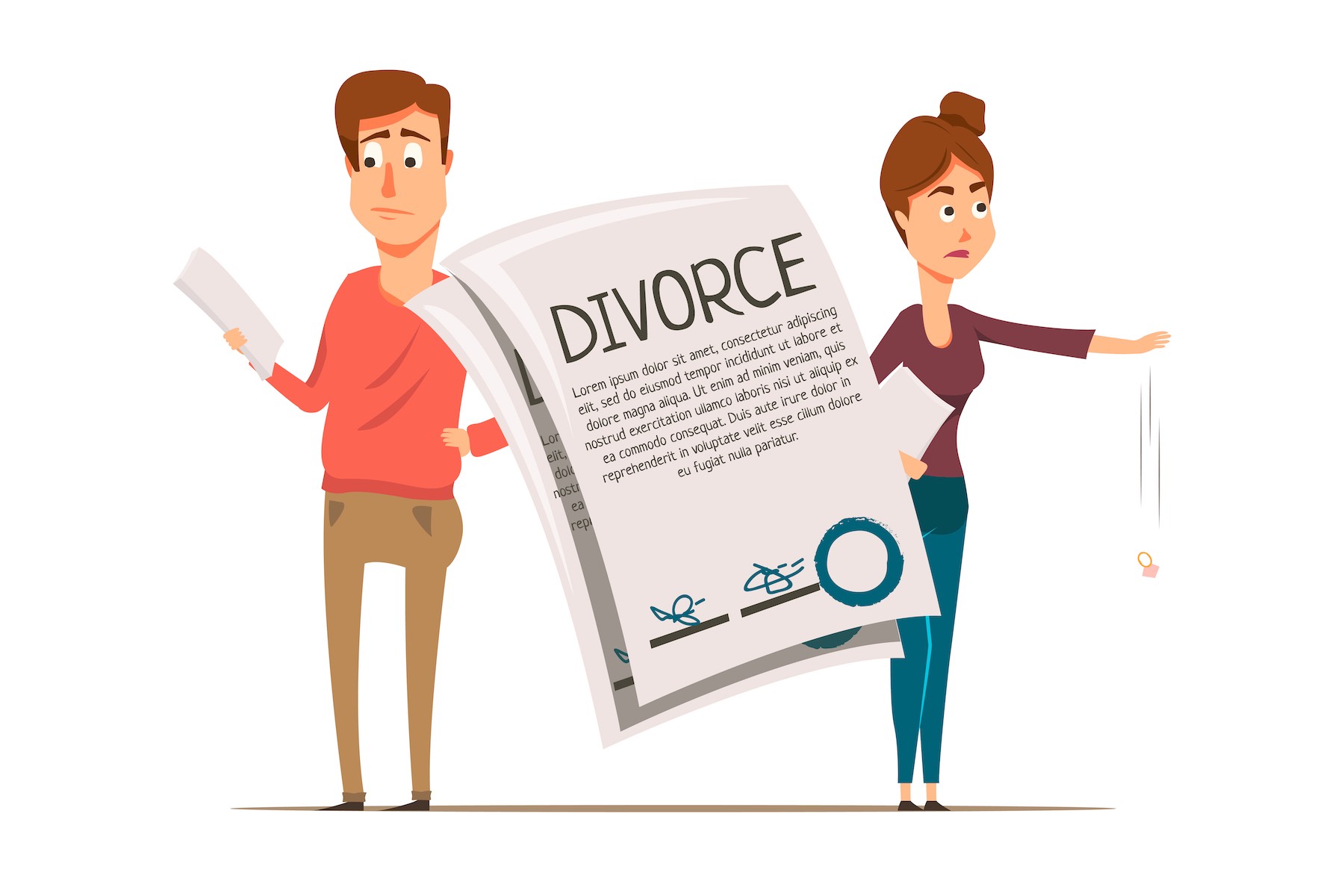According to the most recent statistics, there are 2,132,853 marriages in the United States. Sadly, a significant number of these marriages are bound to end up in divorce at some point. Experts estimate the chances of uncoupling at 39 percent in the U.S.
Realizing that your marriage is failing can be a devastating experience. The decision to get being divorce proceedings can be even harder. That’s because you’ve spent a significant part of your life investing your emotions with your spouse.
But there’s an alternative to divorce: legal separation. Indeed, the divorce vs legal separation discussion is a common one today.
But what is the difference between the two? More importantly, which of the two should you opt for? Can a lawyer help make things easier for you?
If you’re asking yourself these questions, you’ve come to the right place. In today’s post, we tell you all you need to know about legal separation and divorce so you can make an informed decision.
Understanding Divorce vs Legal Separation
When living separately is the most sensible move for you and your spouse, legal separation or divorce can create the space both of you need. But while both legal separation and divorce involve couples living separately, there are important differences between the two.
The primary difference between divorce and legal separation is that once a divorce is finalized, the marriage is formally ended. Each person can now live their life as a single person from this point on. A divorce grants you the freedom to remarry.
On the other hand, a legal separation does not end a marriage. While the two of you don’t share the same roof, you’re still legally married to each other and cannot remarry. Both spouse can still inherit from the other, and any child born to the woman during the legal separation is still legally considered the child of the other spouse unless it’s proven otherwise.
According to the best divorce lawyer in Los Angeles, it is important to consider both options form the point of view of what is it that you are looking for. Many couples who feel that divorce might not be in the best interests of their kids go for a legal separation. This helps them keep assets unified. On the other hands, some simply feel that a legal separation is like dragging on a relationship that isn’t simply working. At the end of the day, it is what couples’ feel is in their best interest.
Why Should You Opt for Legal Separation Instead of a Divorce?
The high divorce rate among American couples may make divorce seem like the go-to solution when your marriage hits the rocks, but a legal separation may actually be a better choice for you. There are many pros of a legal separation.
For instance, spending time apart is a great recipe for fixing things and saving your marriage. But even if this doesn’t happen, a legal separation helps you see how things will be after your divorce, which helps you make an informed decision. About 15 percent of people who try legal separation opt to remain separated indefinitely.
Another benefit of choosing legal separation is that a spouse without health insurance is still covered by the other spouse’s policy. Besides, remaining legally married can positively impact your ability to qualify for greater pension benefits and a higher Social Security amount.
Another financial advantage of opting to remain legally married is that you may be eligible for certain tax benefits as a couple.
For some people, divorce is not a viable choice due to ethical or religious issues surrounding divorce. A legal separation works best in this case. Where possible, these ethical or religious issues can be addressed before filing divorce papers.
As we hinted earlier, the majority of legally separated couples go on to divorce. In such a case, the actual divorce process becomes much quicker as the separation agreement simply transforms into a divorce decree. Usually, only paperwork is needed to finalize the divorce.
Are There Negatives of a Legal Separation?
As you consider getting a legal separation, it’s important to be aware of the potential negatives of the move. Both parties must come to an agreement before they can get a court order legalizing their separation. Given the emotions involved, reaching an amicable agreement may be difficult and sometimes expensive.
If you and your spouse have a joint account, the other party may start to use more money than you agreed upon, making an already complicated situation more difficult. You have no control over the joint bank account, which could result in money disappearing as the other spouse starts to plan for their financial future.
In certain states, there are restrictions barring a legally separated person from getting into a relationship with someone new. This makes it difficult for you to move on with a different partner you may be interested in.
Should You Get an Attorney?
Whether you’re considering a legal separation or want to get a divorce and move on with your life, it helps to hire competent legal representation. Legal separation and divorce law can be complicated, and you need to have a legal expert on your side throughout the process.
Every state has its laws regarding the division of property and debt. Family lawyers are well versed in these laws and can help make things easier for you. Your attorney will present your case in such a way that your best interests are protected.
But how do you determine the best family law attorney for you?
Start by looking at your prospective lawyer’s reputation. Seek recommendations from people you trust, and read online reviews to learn more about the attorney. If others make glowing remarks about a certain family attorney, chances are you’ll have a positive experience working with them.
Besides reputation, find out how experienced your potential attorney is. Have they legally practiced in your state for a considerable amount of time? What is their success track record?
Once you’re satisfied with your prospective attorney’s reputation and experience, it’s time to talk about their pricing. The best attorney won’t be dirt cheap, but neither will they charge an extortionate fee to represent you. Compare the rates of at least three competent family attorneys and choose a quote that you can comfortably afford.
Divorce vs Legal Separation: Make an Informed Choice
When it comes to divorce vs legal separation, the choice is ultimately yours. Take a close look at your situation and understand both the emotional and legal implications of each. Remember, you can always count on your lawyer for advice where things seem a little fuzzy.
Would you like to learn more about the laws surrounding divorce and legal separation? Please keep visiting our blog










